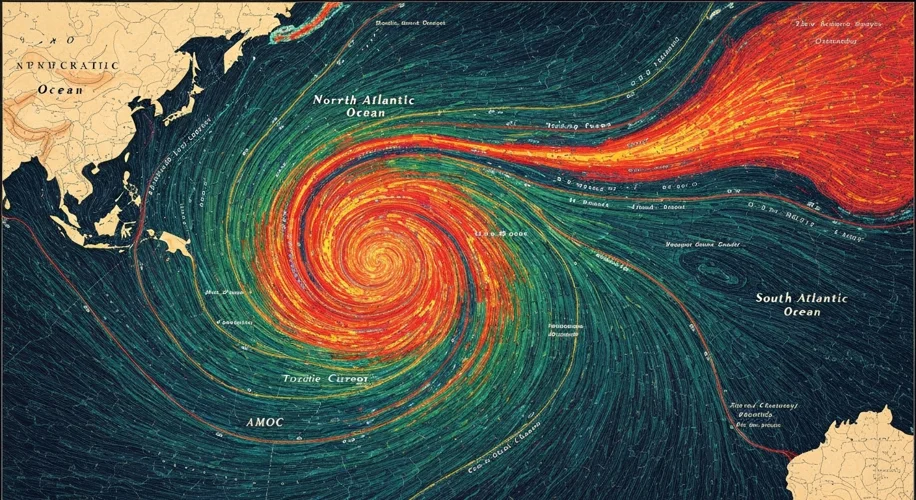The vast, powerful currents that move heat and nutrients around our planet are showing signs of slowing down, and scientists are sounding the alarm. A recent study has identified a new indicator suggesting that a critical system, the Atlantic Meridional Overturning Circulation (AMOC), could be on the verge of a significant slowdown or even a complete shutdown.
What is the AMOC and Why Does It Matter?
The AMOC is like Earth’s global conveyor belt. It’s a system of ocean currents in the Atlantic that transports warm surface water from the tropics northward and sends cold, deep water southward. This circulation plays a crucial role in regulating global weather patterns, influencing everything from temperatures in Europe to rainfall in the tropics.
Did you know that without the AMOC, Western Europe would be significantly colder, experiencing climates more akin to those in Canada? It also influences sea levels along the eastern coast of North America.
The New Warning Signs
Scientists have been concerned about the stability of the AMOC for years, with many climate models predicting a slowdown due to increased freshwater entering the North Atlantic from melting glaciers and ice sheets. This influx of freshwater can disrupt the density-driven circulation that powers the AMOC.
A new study, published recently, has identified a specific indicator within the ocean’s salinity levels that acts as a precursor to this slowdown. By analyzing this indicator, researchers believe we can better pinpoint when the AMOC might be approaching a critical tipping point. The urgency in the scientific community is palpable, with some researchers stating, “We have to act really fast.”
What Could Happen if the AMOC Shuts Down?
The potential consequences of a shutdown are far-reaching and could include:
- Dramatic Weather Shifts: Major changes in temperature and precipitation patterns across North America, Europe, and other regions.
- Rising Sea Levels: Increased sea levels along the East Coast of the United States.
- Impacts on Ecosystems: Disruption of marine ecosystems that depend on the nutrient transport provided by the currents.
Why This Matters to Us
As someone who studies climate modeling, I find this research incredibly important. It highlights how interconnected our planet’s systems are and how even seemingly distant changes can have profound impacts on our daily lives. The AMOC’s health is directly tied to the stability of our climate, and understanding these early warning signs is crucial for informed action.
This isn’t just about abstract science; it’s about the world we live in and the future we’re building. The urgency expressed by scientists underscores the need for continued research, monitoring, and, most importantly, decisive action on climate change to maintain the balance of these vital oceanic systems.

